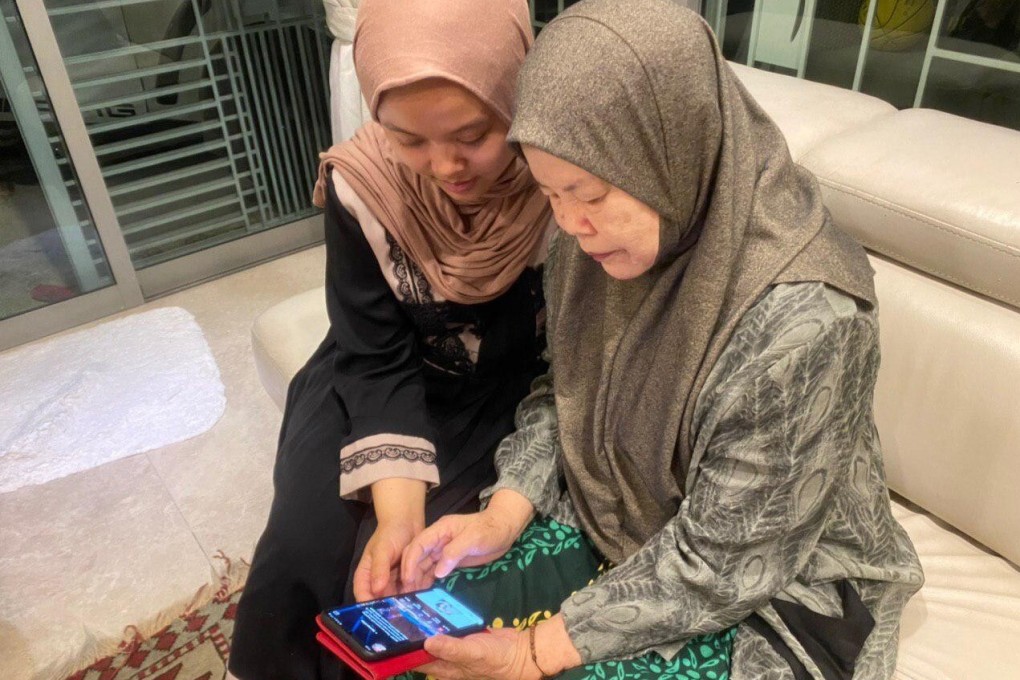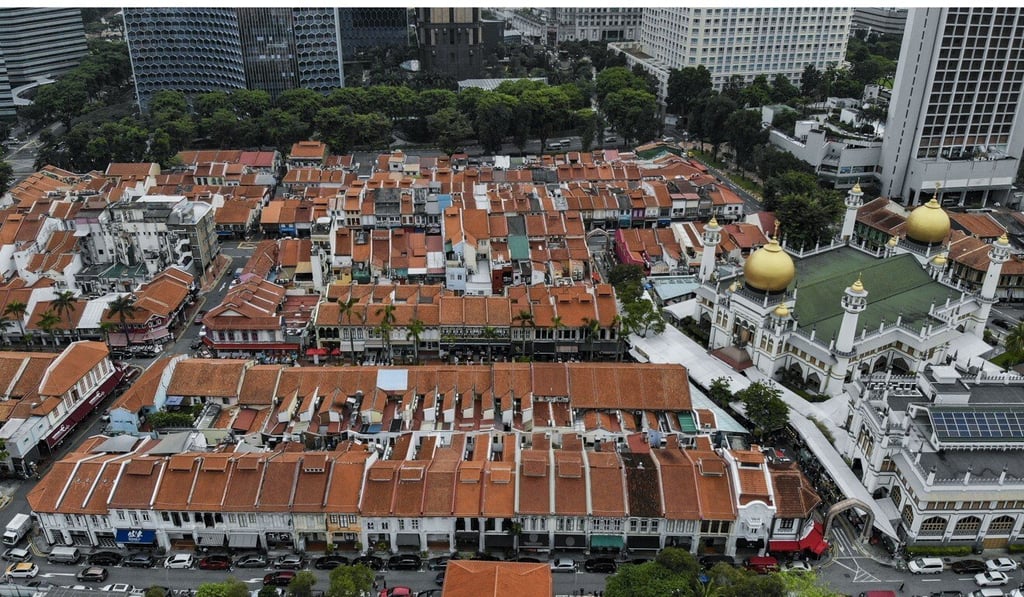In Singapore, ‘digitally estranged’ seniors grapple with how to celebrate Hari Raya via FaceTime and Zoom
- Hari Raya Idul-Fitri, which falls on Sunday, will be hard for Muslims who are unable to receive visitors and share meals due to coronavirus restrictions
- Even though 88 per cent of Singaporeans are internet users, those not digitally savvy feel cut off from loved ones, affecting their mental health

Singaporeans were also barred from visiting other homes, although this will change when restrictions are eased from June 2 and up to two visitors a day are allowed – as long as they come from the same household.

Hari Raya Idul-Fitri, or Eid al-Fitr, which falls on Sunday, will be especially difficult for Rahman. He has eight children and 20 grandchildren, and would usually expect a steady stream of visitors to his three-bedroom flat, with exchanges of green packets and shared meals. But this year, it will just be him and his domestic helper.
“I’ve not experienced anything like this before … I can’t go to the mosque on the first day of Hari Raya for my prayers and listen to the takbir [chants of God is Great in Arabic], and can only listen to the radio. I have a phone which I only use to call and text. I don’t know how to use all these new technologies like watching videos online,” he said.
“My helper tried to teach me but I find it hard to understand. I also feel sad because my family won’t be able to gather at my home unlike the previous years.”